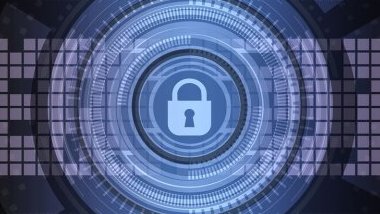Digitalisation is influencing various areas of our lives, and its opportunities and risks are discussed critically in the political discourse. It is thus also important to shed light on AI and algorithms in the context of electoral processes.
How can AI be used to simplify our lives? Do we even want that? And what about security? The direct election of the European Parliament, introduced in 1979, has been an important step towards the democratisation of the EU. It provides EU citizens with the power to participate and gives Parliament a special status. However, contrary to expectations, the institutional upgrade of the European Parliament did not lead to an increase in participation in the European elections.
Rather, the criticism of a democratic deficit has become louder in recent years. For many voters, the election seems unimportant and often serves as a means of expressing dissatisfaction with national governments. Extending the elections to the use of digital technologies could lead to more people participating in the elections... but there are risks involved.
Digitised voting
Elections to the European Parliament are direct, free, secret and by universal suffrage, according to Article 14(3) of the Treaty on European Union. This principle could be undermined by the use of digital technologies. Estonia, which has taken a leading position in the field of digitalisation, has already used electronic voting during past elections. This electoral method allows for casting a vote online. Doing so must be strongly protected in order to prevent manipulation. In addition, an encryption system must ensure that the secrecy of the vote is guaranteed.
Alongside the risks which digital voting entails, there are also advantages to be taken into account when considering the options. Saving time and costs is of considerable significance. However, “voting by clicking” may be more imprudent than traditional voting. The importance of the election as a source of democratic legitimacy for the European Parliament may thereby be jeopardised. Even a postal vote feels different than in the polling booth.
Influence on electoral campaigns
Regardless of whether one decides in favour of or against the introduction of digital technologies in the elections, we are all already exposed to manipulation before any such decision is taken. Algorithms even design our web browser’s homepages, as seen in a simple test: searching for the same term in a search engine will lead to different results for different people; the order will vary, so will the content.
In order to be ranked higher, political actors seek search engine optimisation, meaning if there is only a certain degree of convergence, one will automatically be shown content of this party. Algorithms do get to know each and every one of us pretty well after some time, and can tailor the results accordingly. Others develop targeted advertising messages for each personality type and heavily influence our perception, so-called micro-targeting. Thus, algorithms endanger the principle of “free choice”.
Theory of the filter bubble
The same applies to social networks where we often end up reading exclusively what interests us or reflects our opinion anyway. We always find the same arguments and surround ourselves only, or at least almost only, with people who share the same views. This can lead to more extreme opinions than when being in contact with people of different beliefs.
But how can we protect ourselves, then? Simply by taking a more balanced approach – watch different television news, read more than one daily newspaper and cautiously use social networks – as a basis for our decision-making and by using all of these various sources to form our own opinions.
Conclusion
Digitalisation offers numerous opportunities to simplify processes and thereby reaches a larger circle of users – this also applies to the election process. Nevertheless, we should ask ourselves whether a swift – possibly imprudent – decision is desirable in the case of this fundamental aspect of our lives, this democratic principle, or whether we should rather act deliberately and with persuasion.
It is essential to form one’s own opinion and to beware of and critically question the daily influence of social media and search engines, for instance. We sometimes lose contact with the ’real world’ and different world views, and consolidate our opinions in our homogeneous information world. In order not to lose sight of the most relevant aspects and to arrive at new views by debating with others, it is therefore important to leave this enclosed world – even if only temporarily.





Follow the comments: |
|
